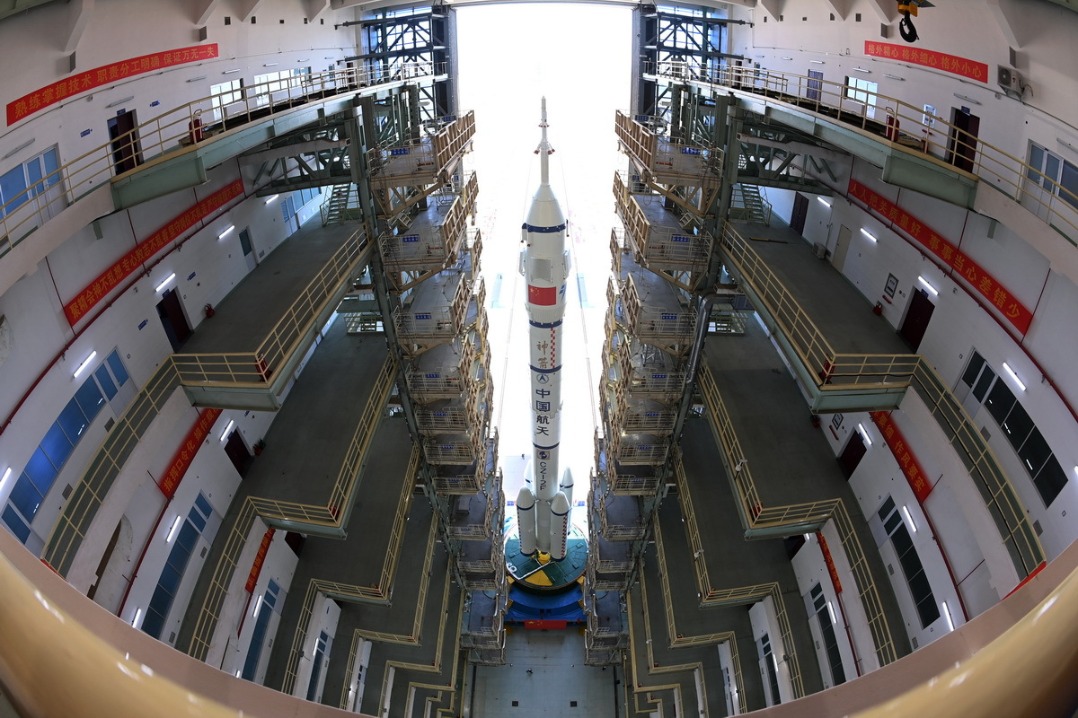Nation reveals plan to boost computing power, digital economy
By Ma Si | CHINA DAILY | Updated: 2023-10-10 07:18

China aims to boost its aggregate computing power by more than 30 percent by 2025, in a plan to scale up digital infrastructure that is key to buoying the country's thriving digital economy and to inject new vitality into high-quality development of its sprawling industries.
Roughly defined as the ability to process data, computing power includes information infrastructure and technologies to support information computing power, data storage and network capacity in the era of the digital economy.
The plan, which was released on Monday by six departments including the Ministry of Industry and Information Technology, said that China aims to achieve total computing power of 300 EFLOPS by 2025. EFLOPS is a unit of the speed of computer systems. It equals 1 quintillion floating-point operations per second.
The MIIT revealed in August that China's computing power had touched 197 EFLOPS this year, up from 180 EFLOPS in 2022. The ministry ranks China as second behind the United States in computing power globally.
Sources close to the MIIT told China Daily that no public, official data is available about the specific scale of computing power in different countries, and the rank is based on estimates from the China Academy of Information and Communications Technology, or CAICT, a Beijing-based think tank.
The academy estimates that the computing power of the US reached 200 EFLOPS in 2022 and has been growing steadily this year.
It would be difficult for China to overtake the US in computing power by 2025, partly due to the latter's restrictions on export of high-end processors to us, but the plan is an ambitious push by China to boost its computing prowess and to fuel economic growth, the sources added.
Wu Hequan, an academician at the Chinese Academy of Engineering, said that computing power is the new engine of the digital economy, which, driven by innovation, is a major growth driver of China's economic strength.
Every yuan invested in computing power will drive economic growth of 3 to 4 yuan in GDP, Wu said.
According to Wu, as artificial intelligence training requires a large amount of computation, the effort to expand the supply of computing power becomes increasingly important amid the global race for AI leadership, Wu said.
The scale of China's core computing power industry reached 1.8 trillion yuan ($246.8 billion) in 2022, according to the CAICT.
Yu Xiaohui, head of the CAICT, said, "China's computing power industry has grown at an average rate of nearly 30 percent for five years, and the corresponding figure for AI computing power is 45 percent."
AI computing power currently accounts for more than 25 percent of China's overall computing power, Yu added.
The latest plan aims to increase the proportion to 35 percent by 2025, in order to better buoy the ongoing AI boom.
Jin Zhuanglong, minister of industry and information technology, said earlier that more efforts will be made to enhance independent innovation in areas such as computing algorithms and key chip products, including GPUs, which are the most sought-after processors in China to support AI applications.
Yang Jie, chairman of telecom carrier China Mobile, said, "We will work hard to make computing power as common and easy to use as water and electricity."
Yang said the company is building the largest AI computing center in Asia.
























